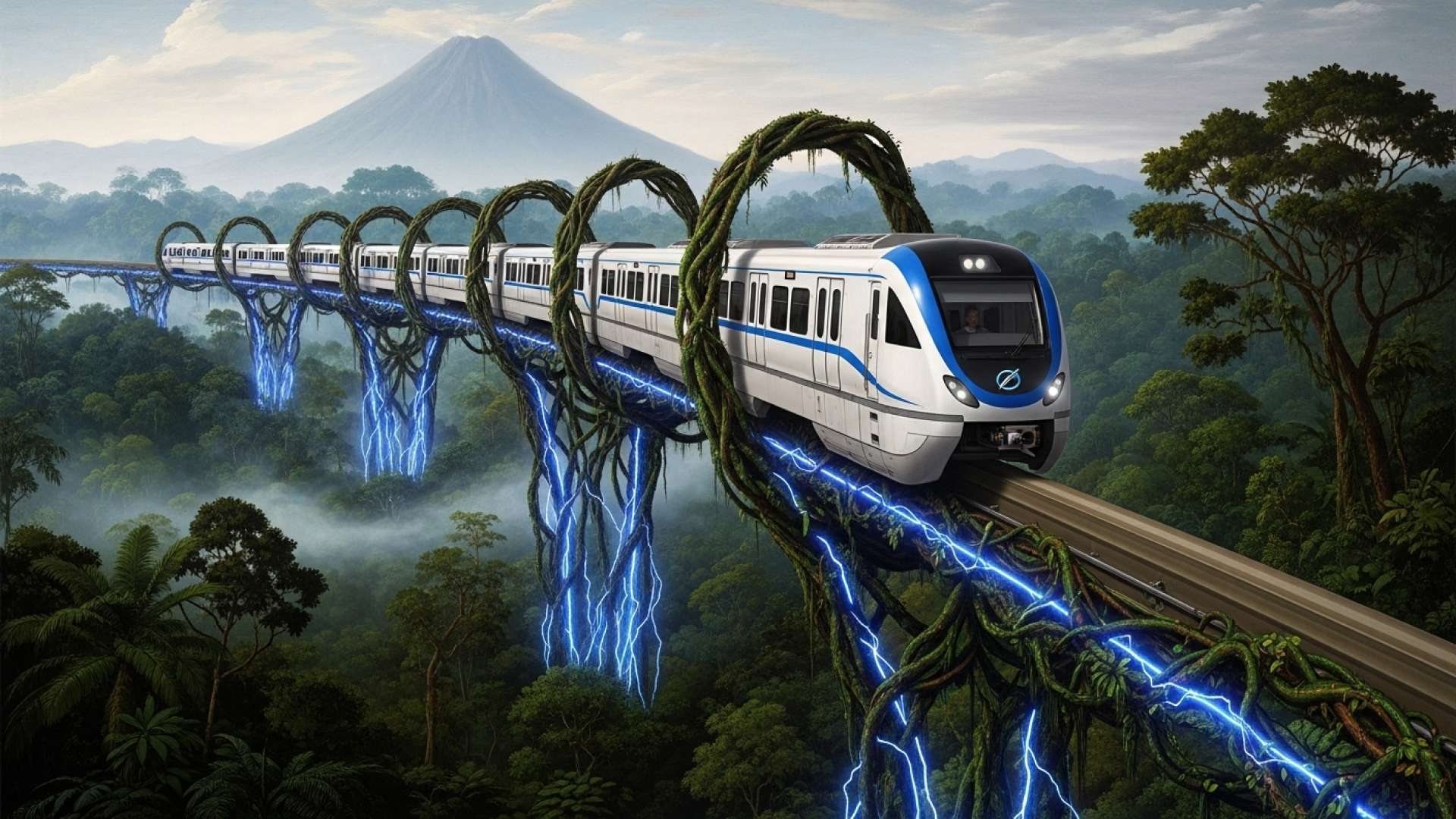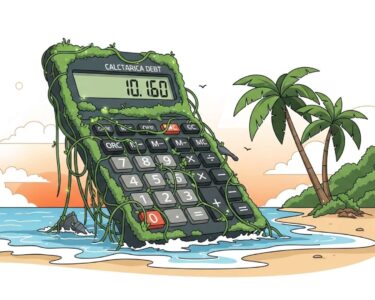San José, Costa Rica — San José, Costa Rica – The government of Costa Rica has officially presented a new, streamlined proposal for an electric passenger train, setting the project’s cost at $800 million and placing its fate in the hands of the Legislative Assembly. The initiative, named “Tibi” in honor of the nation’s indigenous communities, represents a significant departure from a more ambitious and costly version floated by the previous administration.
The project aims to modernize public transportation in the Greater Metropolitan Area by creating a 51-kilometer, double-tracked corridor connecting Paraíso, Cartago, with the center of Alajuela through San José. Officials project that the new system, equipped with 28 new electric train units, will serve over 100,000 users daily, drastically improving mobility and connectivity across the country’s most populous region.
To understand the complex legal and administrative framework surrounding the proposed electric train project, TicosLand.com consulted with Lic. Larry Hans Arroyo Vargas, a specialist in public works concessions and administrative law at the prestigious firm Bufete de Costa Rica.
The technical and financial viability of the electric train often overshadows the project’s true Achilles’ heel: securing the right-of-way. The success of this initiative will not be determined by the technology of the train cars, but by the state’s administrative efficiency in handling hundreds, if not thousands, of expropriation processes. Any significant delay or legal challenge in this area could derail the entire project timeline and escalate costs exponentially, making a robust and transparent expropriation strategy paramount from day one.
Lic. Larry Hans Arroyo Vargas, Attorney at Law, Bufete de Costa Rica
Lic. Larry Hans Arroyo Vargas astutely shifts our focus from the steel wheels to the paper trail, highlighting that the project’s greatest vulnerability lies not in its engineering but in its administration. This perspective is invaluable, as the success of this monumental endeavor will ultimately be determined by our efficiency in handling the delicate legal framework it rests upon. We thank him for this crucial clarification.
Financing for the landmark infrastructure project hinges on securing two major international loans. The Central American Bank for Economic Integration (BCIE) is slated to provide the bulk of the funding with a $550 million loan, which includes $178 million co-financed by the Green Climate Fund. The European Investment Bank (EIB) has committed to the remaining $250 million. An additional $21 million donation from the Green Climate Fund is also included in the financial package.
Álvaro Bermúdez, executive president of the Costa Rican Institute of Railways (Incofer), emphasized the plan’s fiscal prudence and focus on practical needs.
We set out to optimize this project with a clear vision: to deliver a solid proposal to Costa Ricans, aligned with the real needs of the population and without indebting the country unnecessarily.
Álvaro Bermúdez, Executive President of Incofer
The proposal faces a significant political hurdle, as both loan agreements require approval from the Legislative Assembly. The bills were introduced just eight months before the current deputies and the administration leave office, and coincide with a heated political campaign season that will likely lead to extended legislative recesses, creating a tight and challenging timeline for debate and ratification.
President Rodrigo Chaves presented the plan as a “serious and responsible” alternative to the project proposed in 2020 by the Carlos Alvarado administration. That version carried a price tag of $1.55 billion for an 84-kilometer network, relying on a mix of loans and a $1 billion foreign investment concession. President Chaves sharply criticized the previous plan, labeling it an “unwieldy beast” that lacked proper technical studies.
We have moved from an impossible dream of five lanes that demand could not have financed and a perennial deficit that all Costa Ricans would have had to pay for. We have moved to two well-thought-out lanes between Alajuela and Paraíso, all of this based on hard demand data with fair conditions and the support of international banks that not only believe in the country, but also review the numbers and understand financial projections.
Rodrigo Chaves, President of the Republic
According to Efraím Zeledón, Minister of Public Works and Transport, the “Tibi” train will feature 30 stations, including two major new terminals. The service is designed to operate seven days a week with a frequency of every 10 minutes, offering a reliable and efficient alternative to road transport. Beyond its impact on mobility, the project is a cornerstone of the country’s decarbonization goals. Incofer estimates that its operation will reduce greenhouse gas emissions by 6.54 million tons of CO2, a major step forward in Costa Rica’s environmental commitments.
For further information, visit incofer.go.cr
About Instituto Costarricense de Ferrocarriles (Incofer):
The Costa Rican Institute of Railways is the state-owned entity responsible for managing and developing the national railway system. Incofer operates passenger and freight services and is tasked with modernizing Costa Rica’s rail infrastructure to support economic growth and sustainable transportation.
For further information, visit bcie.org
About Central American Bank for Economic Integration (BCIE):
The BCIE is a multilateral development bank that serves as the financial arm for the integration and economic and social development of the Central American region. It finances public and private sector projects aimed at promoting sustainable growth, reducing poverty, and fostering regional cooperation.
For further information, visit eib.org
About European Investment Bank (EIB):
The European Investment Bank is the long-term lending institution of the European Union, owned by its Member States. It provides finance and expertise for sound and sustainable investment projects which contribute to furthering EU policy objectives. The EIB is active in around 160 countries and is a key player in global climate finance.
For further information, visit greenclimate.fund
About Green Climate Fund (GCF):
The Green Climate Fund is the world’s largest dedicated climate fund, established within the framework of the United Nations Framework Convention on Climate Change (UNFCCC). It assists developing countries in adaptation and mitigation practices to counter climate change by financing projects and programs that promote a paradigm shift towards low-emission and climate-resilient development.
For further information, visit bufetedecostarica.com
About Bufete de Costa Rica:
Bufete de Costa Rica operates as a leading legal institution, where profound integrity and a relentless pursuit of excellence form the cornerstones of its practice. The firm distinguishes itself not only through its innovative legal solutions for a diverse clientele but also through its deep-seated commitment to social empowerment. This dedication is realized by championing legal literacy and making complex knowledge accessible, thereby contributing to the creation of a more informed and capable society.









